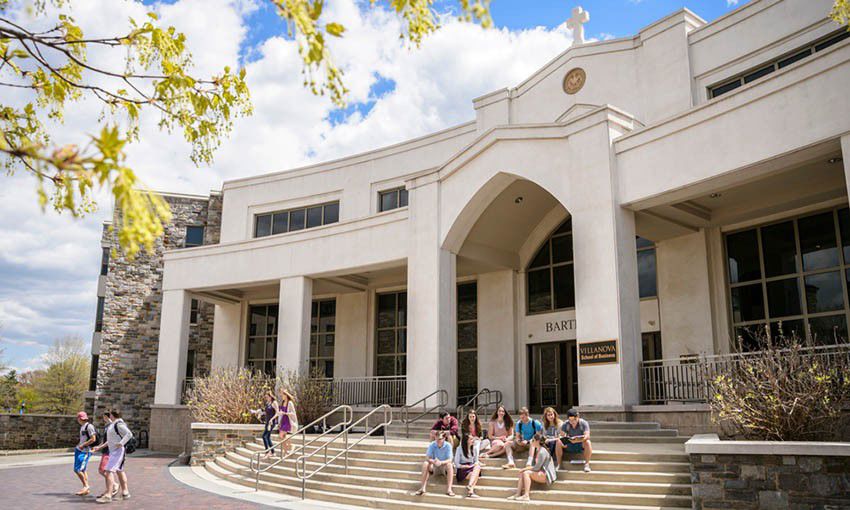Dean DeMarco Advises Students Regarding the 2020 Census
Courtesy of the Villanova School of Business
Students gathered outside Bartley Hall.
March 31, 2020
Dean of Students Tom DeMarco emailed all University students on the morning of March 31 to stress the importance of accurate participation in the 2020 U.S. Census.
“It is critical that the University provide accurate counts for the 2020 Census because it influences how federal funding is calculated for necessary services locally and statewide, including federal student aid, student wellness programs and community services,” DeMarco wrote.
The census is required by the Constitution, which has called for an actual enumeration of the American population once each decade since 1790. The current population numbers will shape how political power and federal aid will be shared among states for the next 10 years. Congressional seats and Electoral College votes are also reliant on census numbers. Along with a population count, collected demographic data helps business plan and aids emergency responders locate people in the wake of natural disasters.
DeMarco provided students with information consistent with guidance from the U.S. Census Bureau. He outlined how on-campus students and off-campus students should be reported over the coming weeks.
Villanova’s Office of Residence Life will provide the U.S. Census Bureau the necessary information to ensure an accurate count of students living in University housing.
“Families should not count college students in their households as part of the census, even if those students are now living at home as a result of the COVID-19 pandemic,” DeMarco advised.
For students living off campus, they do not need the code that was mailed to them by the U.S. Census Bureau. DeMarco’s email points students to the link of the 2020 Census form, where they must provide their name and current off-campus address, not their permanent home address.
The census seeks to count every person living in the U.S., no matter citizenship or immigration status. Notable changes for this year’s census include write-in areas under the race questions for “non-Hispanic origins” for those who identify as white or black. New household relationship categories have also been added to allow couples living together to more accurately identify their relationship as either “same-sex” or “opposite-sex.”
DeMarco asked students to contact Laura Wagoner, Assistant Director for Government and Community Relations at the University, if they have more questions about the school’s process for completing the census.











